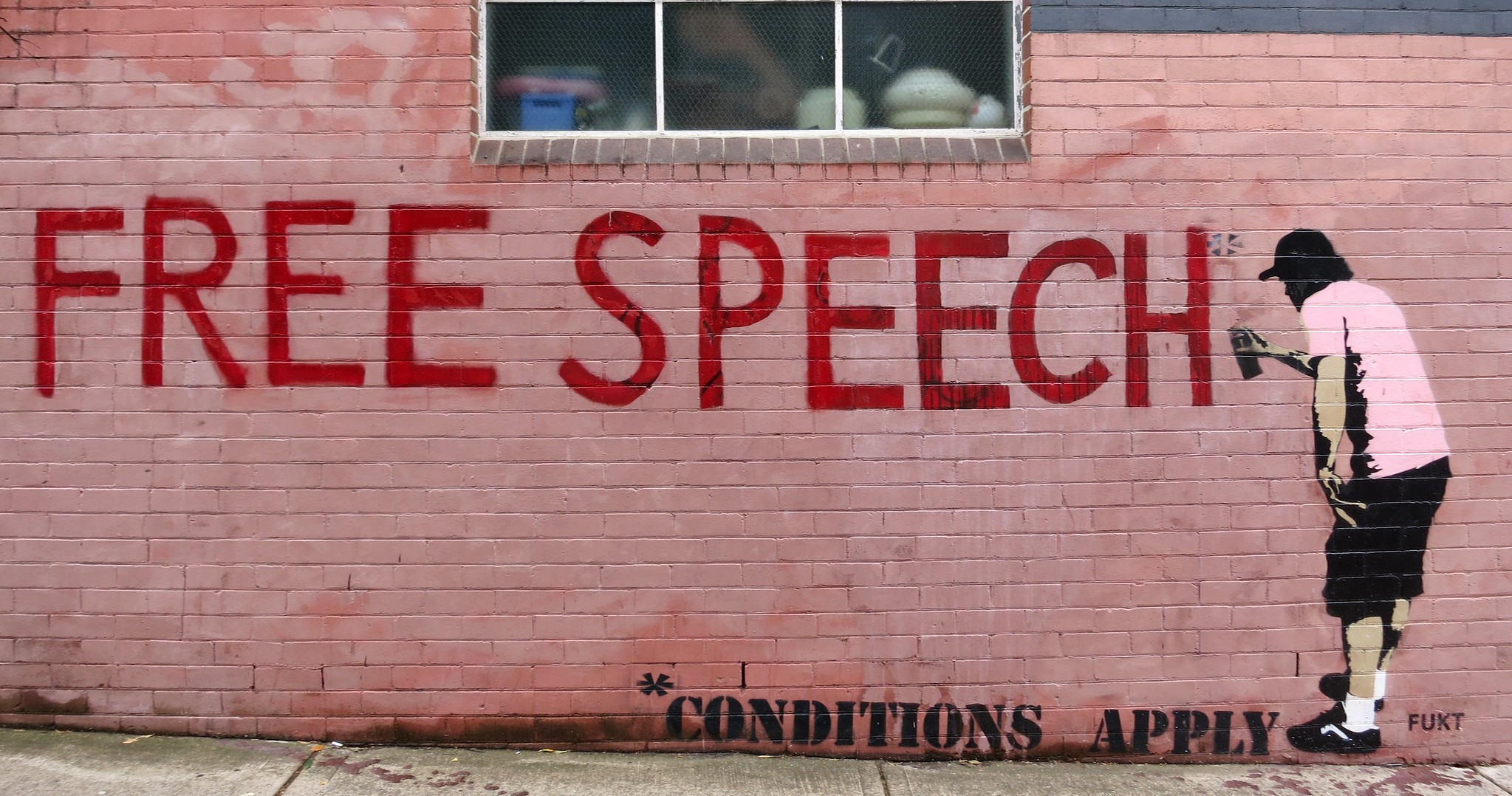Universities must cease to suppress freedom of speech, thought, and press variety on campuses.
The debate on free speech has been at a stalemate for too long. Many on the right side of the political spectrum argue to defend it, at any cost, to ensure that the values of a forward-thinking democracy are upheld.
Many on the left, however, favour shutting down political discourse by de-platforming or “cancelling” voices and ideas that oppose the modern “liberal” movement of “progressivism”.
Fearfully, a rejected opinion does not end with a deleted tweet or an apology before the press – whether it is a celebrity, a commentator, or a politician. Instead, the Search and Destroy tactic is deployed.
Those who the ‘Left’ deem worthy of being “cancelled” must have their personal and professional lives ripped apart, which will include (but is not limited to): getting sacked, having sponsorships or brand deals withdrawn, or having unelected, vengeance-seeking mobs finding any dirt dating back decades in some pathetic and sad attempt to “win” the argument.
These are the cowardly tactics used to thwart opposition to radical ideas such as the “abolition” of our state institutions or the controversial transgender debate. The most ridiculous aspect in all this, however, is that ideas such as the dismantling of our police force or transgender women competing in women’s sports are seen as normal, and it is opposite viewpoints that are regarded as radical or evident of some sort of bigoted “phobia”.
Whilst it is an unforgivable ordeal for any person to go through, – media figure or otherwise – it is appalling that university students must fearfully endure the same mob-rule mentality when it comes to political views; it is clear which is the side of the mob, and which is the side of the victim. If the mob of the self-appointed moral elites had it their way, political opponents would be condemned as enemies of the state, forced to wear armbands clearly denoting political allegiance.
In 2016, students at the City University of London – where a Journalism course is run – voted to ban the sale of the Sun, the Mail and the Express on campus. It was not a newspaper-wide ban, but censorship explicitly of these three papers.
A year later, in 2017, the University of Lincoln banned the student-led Conservative Association after it complained of a lack of free speech. Most recently, the campaign group LSE Class War at the London School of Economics, of all the universities, demanded the abolition of the Hayek Society – named after the Nobel Memorial Prize-winning libertarian economist – because his ideas “oppress” the working classes.
Even more famously, various Higher Education institutions have banned certain – albeit controversial – figures from attending debates, namely Katie Hopkins and Tommy Robinson.
This is almost dystopian.
Whilst ideas that come out of the mouths of such figures like Hopkins or Robinson may be outrageous and disagreeable, that is still no reason to ban them, or withdraw their invitations to speak at university events.
Their ideas should be debated, challenged, and combatted, because if anything, silencing these figures and their views makes their followers angrier, and regrettably, more violent – take the case of Tommy Robinson’s crusade against Islam as an example.
Universities are meant to be institutions where young, aspiring academics go to discuss their ideas, civilly, without one side or the other feeling the perceived social duty to have opposing voices suppressed for the sake of “political correctness” or “social justice”.
In 2017, feminist Kaite Welsh took part in a debate surrounding free speech at universities on the BBC’s Daily Politics; her position epitomised everything wrong with the culture of “cancelling” opposing views.
She said she “[doesn’t] believe that it’s censorship” to de-platform invited guest speakers or students and that: “Universities have always been a safe space for straight, white men. What we’re seeing now is an increase of levelling the playing field – for other voices to be heard, and that will mean removing the platform from one person and giving it to somebody else.”
This is maddening. For a ‘feminist’ to proclaim that in ensuring we give the right of an equal voice to marginalised groups, we remove that right from another, is embarrassingly hypocritical. Where is the “equality” here?
What’s worse is that people will agree with her. This debate around the right to freedom of speech is now dictated by identity politics. The obsession with how immutable characteristics must somehow determine the value of one’s opinion is a huge part of the problem. For political discourse to be driven, seemingly exclusively now, by race, sexuality, or gender, is not “progressive” by any means. If anything, it is the exact opposite: it is regressive.
White voices in opposition to the Black Lives Matter movement are “racist”; male voices in conversations around gender equality are invalid or “misogynistic” – and these ideas, this movement, extends to universities. And, whilst we strive for the supposed “inclusivity” and “diversity” of woke identity politics, it seems that free speech is increasingly being suppressed in favour of identity-driven, quota-filling diversity, not diversity of thought and opinion.
For one to argue that free speech is not being curtailed by the political motivation of universities is mad. Surely the censorship of certain newspapers due to political alignment or the banning of a politically affiliated student-led society is enough to see that free speech is being restricted?
Some of these decisions were taken over five years ago, and still it seems the argument for free speech at universities has become stagnant, whilst attempts to “cancel” alternative opinions to Marxist student activists continue elsewhere.
The views represented in this opinion are those of the author and do not necessarily portray the views of Platform Magazine society as a whole.
Lead Image: wiredforlego / Flickr

